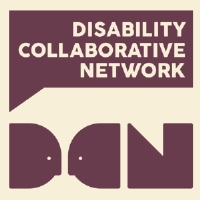DCN was both thrilled and honoured to be invited to hear more about CAPE (Creating A Positive Environment) Project entitled ‘Joining the Dots’ to attract and retain neurodiverse talent in the workplace at the BBC.
Neurodiversity is a spectrum of dyslexia, dyspraxia, dyscalculia, Attention Deficit Disorder, ASD (autistic spectrum disorder) and tourettes[1] . As these profiles are part of a spectrum, it means it effects people in different ways, such as poor working memory but strengthened with a strong visual memory. People with dyslexic traits can often see the big picture and how their organisation can be strategically influenced for better business. Other people may have difficulties reading body language but can consume information as their special interest and collections. No two people will have exactly the same traits.
The BBC event was a great opportunity to meet our colleagues from various social media groups such as #AXSChat and fellow tweeters who are passionate about diversity and inclusion for all. We were happily met by Chloe Spicer who designs multi-sensory experiences with books. Also Neil Milliken from #AXSchat a global accessibility group of various individuals, national and international organisations which invited DCN to be interviewed a few weeks ago. We caught up and networked with representatives including the National Autism Society, Sensory Spectacle and BBC. It was great to see the Tate speaking about their work creating sound artat Tate Kids for children with neurodiverse profiles.
The historic Radio Theatre showcased neurodiverse talent for next 1 ½ hours. Amber Lee Dodd reading from her book ‘We Are Giants’, Rapper Smiffy, Dancer Javarn Carter-Fraser aka Nitro, Space Scientist Maggie Auderin Pocock, great band ‘The Autistix’ comedian Don Biswas and Alan Gardener ‘The Autistic Gardener.’ I’m not going to tell you what neurodiverse profiles these people have, because it shouldn’t matter. Their talent as communicators in their chosen field shone through the entire theatre. Their profiles are part of them, but really it’s their talent as people which is defining.
The message behind the event was the collaboration of sectors and recognising that our recruitment and methods may not attract the talent that we actively sought, as they are not accessible. BBC Employable Me shows that some techniques will not always attract the best candidate. Interestingly when Ashley spoke about his love of the Victorian era. He was sent to an auction house, not a museum.
Leena Haque said for discussion and afterthought should we cross out the word ‘dis’ in disability remain with the word ability’? We recognise ability, but let’s look at our methods to attract and retain neurodiverse and disabled talent in the workplace.
[1] Ref: DANDA


One thought on “BBC Cape Project for neurodiverse talent in the workplace”